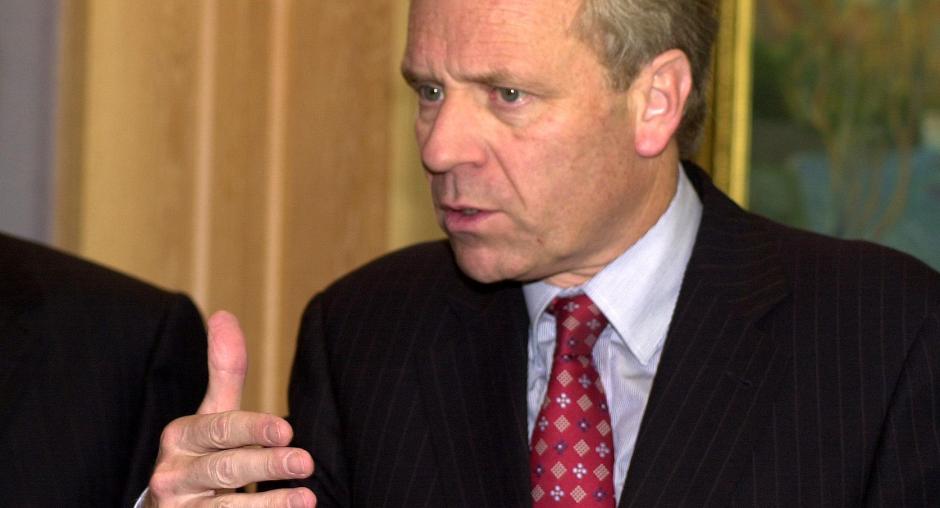Newsroom
OSCE Chairman says democracy, human rights key to fighting terrorism
THE HAGUE 18 September 2003

The OSCE Chairman-in-Office, Netherlands Foreign Minister Jaap de Hoop Scheffer. (OSCE/Alex Nitzsche) Photo details
THE HAGUE, 18 September 2003 - The Chairman-in-Office (CiO) of the OSCE, Netherlands Foreign Minister Jaap de Hoop Scheffer, said on Thursday that respect for democracy, human rights and the rule of law were potent weapons in the fight against terrorism.
"No matter how grave terrorist threats may be, anti-terrorism measures can ultimately be effective only if they are adopted within the context of the human rights commitments we have undertaken," he told a Seminar on Human Rights and Terrorism in The Hague, organized by the Netherlands Helsinki Committee.
"Security policies gain strength and credibility when they are implemented in a manner consistent with international human rights and humanitarian law. If a civilized society wants to remain civilized, it has no alternative but to try and uphold the rule of law and other general human rights principles, even in times of public emergency."
The OSCE CiO said international law permitted countries to take measures that derogate from human rights principles "when national security is threatened by acute and mortal dangers." But, he warned: "We should never use what UN Secretary-General Kofi Annan calls the 'T word' as an excuse for clamping down on political or social dissent. Legislation aimed at combating terrorism should always take into account the need for the protection of human rights and fundamental freedoms."
"Derogation from established rights and freedoms requires us to engage in a balancing act: certain rights and freedoms can be derogated from, but only where essential to meet the security threat," he said. "Other human rights, such as freedom from torture, can never be derogated from."
Minister de Hoop Scheffer said he believed the present system of international human rights law was flexible enough to allow countries to respond to acute terrorist threats effectively while keeping open societies strong and healthy.
"We in the OSCE believe that democracy, the rule of law and respect for human rights are preconditions for security," he added.
"No matter how grave terrorist threats may be, anti-terrorism measures can ultimately be effective only if they are adopted within the context of the human rights commitments we have undertaken," he told a Seminar on Human Rights and Terrorism in The Hague, organized by the Netherlands Helsinki Committee.
"Security policies gain strength and credibility when they are implemented in a manner consistent with international human rights and humanitarian law. If a civilized society wants to remain civilized, it has no alternative but to try and uphold the rule of law and other general human rights principles, even in times of public emergency."
The OSCE CiO said international law permitted countries to take measures that derogate from human rights principles "when national security is threatened by acute and mortal dangers." But, he warned: "We should never use what UN Secretary-General Kofi Annan calls the 'T word' as an excuse for clamping down on political or social dissent. Legislation aimed at combating terrorism should always take into account the need for the protection of human rights and fundamental freedoms."
"Derogation from established rights and freedoms requires us to engage in a balancing act: certain rights and freedoms can be derogated from, but only where essential to meet the security threat," he said. "Other human rights, such as freedom from torture, can never be derogated from."
Minister de Hoop Scheffer said he believed the present system of international human rights law was flexible enough to allow countries to respond to acute terrorist threats effectively while keeping open societies strong and healthy.
"We in the OSCE believe that democracy, the rule of law and respect for human rights are preconditions for security," he added.
